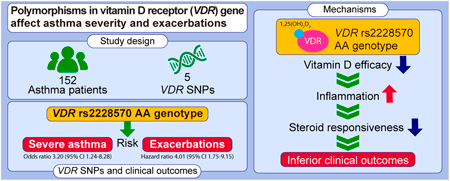- J-STAGE home
- /
- Biological and Pharmaceutical ...
- /
- Volume 48 (2025) Issue 1
- /
- Article overview
-
Sekiko Uehara
Department of Clinical Pharmacology & Genetics, School of Pharmaceutical Sciences, University of Shizuoka, 52–1 Yada, Suruga-ku, Shizuoka 422–8526, Japan
-
Keita Hirai
Corresponding author
Department of Clinical Pharmacology & Genetics, School of Pharmaceutical Sciences, University of Shizuoka, 52–1 Yada, Suruga-ku, Shizuoka 422–8526, Japan Department of Clinical Pharmacology and Therapeutics, Shinshu University Graduate School of Medicine, 3–1–1 Asahi, Matsumoto, Nagano 390–8621, Japan Department of Pharmacy, Shinshu University Hospital, 3–1–1 Asahi, Matsumoto, Nagano 390–8621, Japan
-
Toshihiro Shirai
Department of Respiratory Medicine, Shizuoka General Hospital, 4–27–1 Kita-Ando, Aoi-ku, Shizuoka 420–8527, Japan
-
Hinako Otaki
Department of Clinical Pharmacology & Genetics, School of Pharmaceutical Sciences, University of Shizuoka, 52–1 Yada, Suruga-ku, Shizuoka 422–8526, Japan
-
Taisuke Akamatsu
Department of Respiratory Medicine, Shizuoka General Hospital, 4–27–1 Kita-Ando, Aoi-ku, Shizuoka 420–8527, Japan
-
Kunihiko Itoh
Corresponding author
Department of Clinical Pharmacology & Genetics, School of Pharmaceutical Sciences, University of Shizuoka, 52–1 Yada, Suruga-ku, Shizuoka 422–8526, Japan Laboratory of Clinical Pharmacogenomics, Shizuoka General Hospital, 4–27–1 Kita-Ando, Aoi-ku, Shizuoka 420–8527, Japan.
Supplementary material
2025 Volume 48 Issue 1 Pages 86-92
- Published: January 31, 2025 Received: October 15, 2024 Released on J-STAGE: January 31, 2025 Accepted: December 11, 2024 Advance online publication: - Revised: -
(compatible with EndNote, Reference Manager, ProCite, RefWorks)
(compatible with BibDesk, LaTeX)


